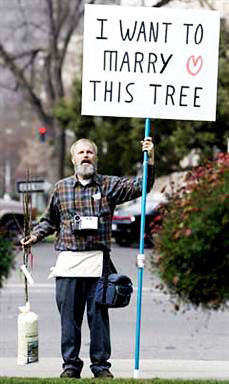NOT SO FUNNY...
AFTER ALL...
 My metropolitan hostess, she of the far-left opinions and [mea culpa] bruised feelings, pressed Barbara Ehrenreich's Bait and Switch: The [Futile] Pursuit of the American Dream into my hands with the assurance that she had heard, and to the extent she had read it, had found that it was very funny.
My metropolitan hostess, she of the far-left opinions and [mea culpa] bruised feelings, pressed Barbara Ehrenreich's Bait and Switch: The [Futile] Pursuit of the American Dream into my hands with the assurance that she had heard, and to the extent she had read it, had found that it was very funny.It is and it isn't. And just perhaps this was a goodbye "sting"?
Ms. E lived a lot of what my life has been over the last two years or so, and writes very amusingly about her experience. The difference, of course is in the final sentences of the following chapter. Bottom line: it does at least make me feel like I am not alone...
The hope, as one sinks into the world of low-paid, menial jobs, is that either the long-awaited e-mail will finally come, offering a more appropriate professional job, or the survival job itself will provide a route to upward mobility. But the survival job may preclude the search for a better job.
While I was skeptical about my coaches’ insistence that searching as a full-time job in itself, it easily eats hours a day — hours that are no longer available to the survival-job-holder. “It’s hard to continue the search with ten- to fourteen-hour workdays,” Dean Gottschalk, the tech guy turned limo driver, told me. “I’ve had to cut back on interviews for now. What I bring in is just a notch above slinging burgers.” Steve, who had been about to study wines, has laid-off friends who are working at Home Depot and Lowes, “but they’re so tired after lifting all day, they’re too tired to do their searching.” Leah Gray encountered another problem familiar to the unemployed and underemployed: while she had lost weight doing manual labor, the stresses of this last year provoked a thirty-pound gain, and she can’t afford to buy a new suit for interviews...
 And no matter how upbeat they are — no matter how ingenious and flexible – the unemployed and underemployed understand that the clock is always ticking in the background. The longer you are unemployed, the less likely you are to find an appropriate job, and entries like “sales associate,” “limo driver,” or “server” do not make an attractive filling for the growing Gap in one’s resumé. At the same time, you are inexorably aging past the peak of occupational attractiveness, which seems to lie somewhere in the midthirties now. Experience is not an advantage; in fact, as Richard Sennett notes of corporate employment, “as a person’s experience accumulates, it loses value.”
And no matter how upbeat they are — no matter how ingenious and flexible – the unemployed and underemployed understand that the clock is always ticking in the background. The longer you are unemployed, the less likely you are to find an appropriate job, and entries like “sales associate,” “limo driver,” or “server” do not make an attractive filling for the growing Gap in one’s resumé. At the same time, you are inexorably aging past the peak of occupational attractiveness, which seems to lie somewhere in the midthirties now. Experience is not an advantage; in fact, as Richard Sennett notes of corporate employment, “as a person’s experience accumulates, it loses value.” So once you fall into the low-wage, survival-job trap, there’s a good chance that you will remain there — an unwilling transplant from a more spacious and promising world. In the midsixties, China’s Chairman Mao conducted a vast experiment in sudden downward mobility. As part of his Great Proletarian Cultural Revolution, thousands of managers and professionals — the very people one might have thought would be essential to the nation’s economic development – were abruptly sent to the countryside to work alongside the peasants in the fields.
The idea, ostensibly, was that the displaced professionals would come to appreciate the backbreaking labor of planting and sowing that their own well-being ultimately depended on, much as Leah Gray came to respect the Hispanic workers whose toil supports the North American economy. But whatever the socially redeeming value of downward mobility, the experience of a “survival job” can be devastating to those who have been groomed to expect far better. Mao’s transplants did not become better citizens; in fact many of them were left permanently embittered by their experience.
Perhaps even more so, in a society where worth is measured entirely by income and position, downward mobility carries a sense of failure, rejection, and shame.
I do not follow my fellow job seekers into the world of survival jobs. My great advantage in this project is that I can simply say “game over” and return to my normal work as a writer. My fellow seekers still hang there, suspended above the abyss.
At least I know it's not just me that's been relegated to the ash-heap.
Does that make me feel any better? Well, let's just say that the laughter hurt a bit.
So in the final analysis [Anal Ysis?], NO.
Hang in there.
Pray for the men on the rocky road.
And, as a friend of mine says, "take care of you."
No comments:
Post a Comment